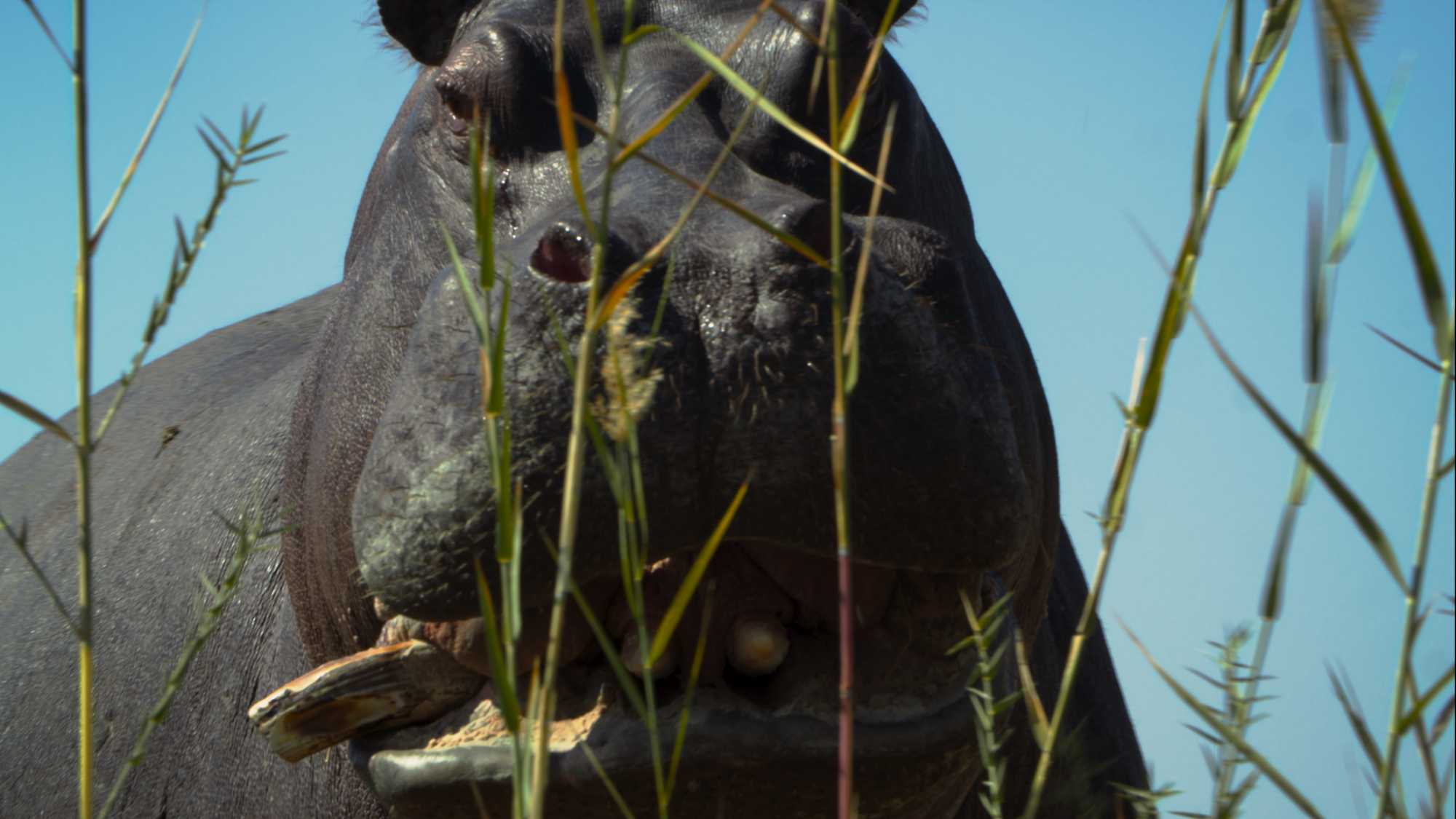One of Pablo Escobar’s “cocaine hippos” ponders the meaning of existence from beyond the grave in this gleefully unclassifiable film that playfully weaves fact, fiction and form into a truly unique cinematic experience.

What is striking about Pepe, beyond the outré premise itself, is its challenging, utterly distinctive style… defined by a radically inventive filmic language.
Screened as part of 2024
Pepe 2024
Pepe was the first hippopotamus shot down in the Americas. He was freely roaming the waters of Rio Magdalena, Colombia, leaving fishermen in awe and terror. Pepe was a “cocaine hippo”, part of drug lord Pablo Escobar’s personal menagerie. “Imported” from Namibia, Escobar’s hippos thrived in their new American habitat after his demise. But Pepe was an unwanted guest.
Dominican director Nelson de los Santos Arias summons the spirit of that legendary hippo in Pepe, giving him voice and turning him into a polyglottal narrator in what is possibly the most unclassifiable cinematic oddity of 2024. Guided by an adamant post-colonial stand and influenced by the tropical cinema of Brazilian master Glauber Rocha, de los Santos Arias cleverly experiments with narration and formats, deliberately blurring fiction and documentary, factual narration and magic realism, and adopting a structure that favors digressions and diversions rather than linearity.
Bridging Africa and Latin America, the amazing mosaic of Pepe provides an alternative, politically charged retelling of the colonial connection between the two shores of the Atlantic. Ironic and stylistically enthralling, Pepe won de los Santos Arias a deserved Silver Bear for Best Director at the 2024 Berlinale. Hailed as the Apichatpong Weerasethakul of Latin America, he is a talent that New Zealand audiences should discover too. — Paolo Bertolin
“De los Santos Arias is refreshingly promiscuous when it comes to the look of the film, switching allegiance between widescreen and academy ratio, black and white and lush, verdant colour. Ultimately, it’s a film that refuses to be pinned down and which consistently defies expectations. Pepe is crammed, perhaps even overstuffed, with ideas, but which, like the huge beasts at the heart of the story, is deceptively agile and light on its feet.” — Wendy Ide, Screen Daily